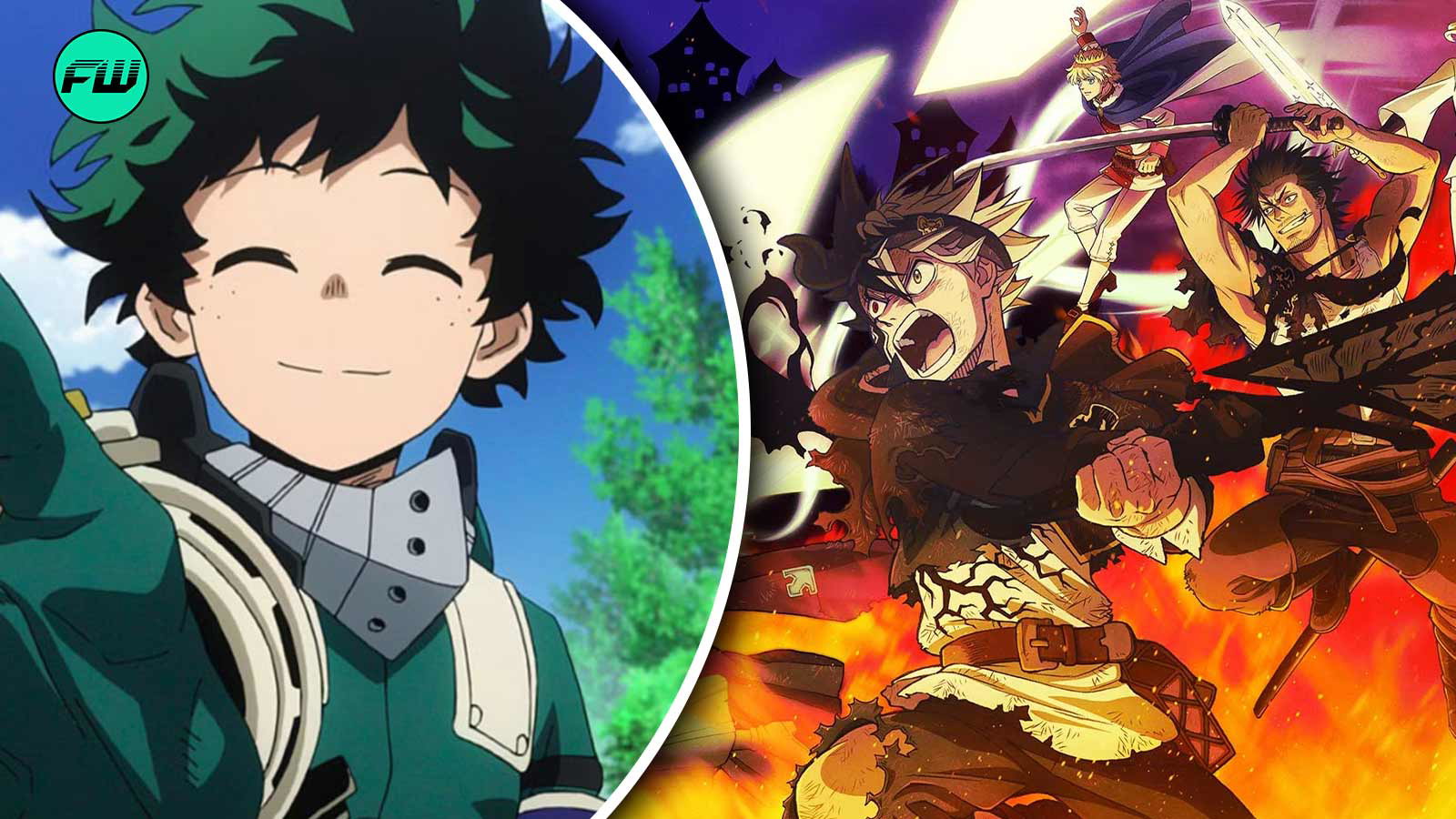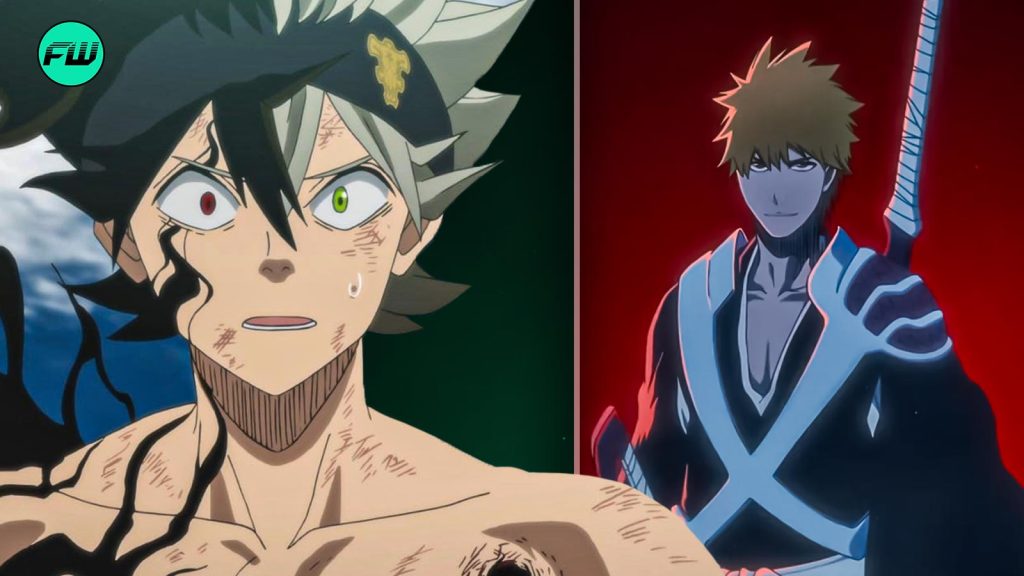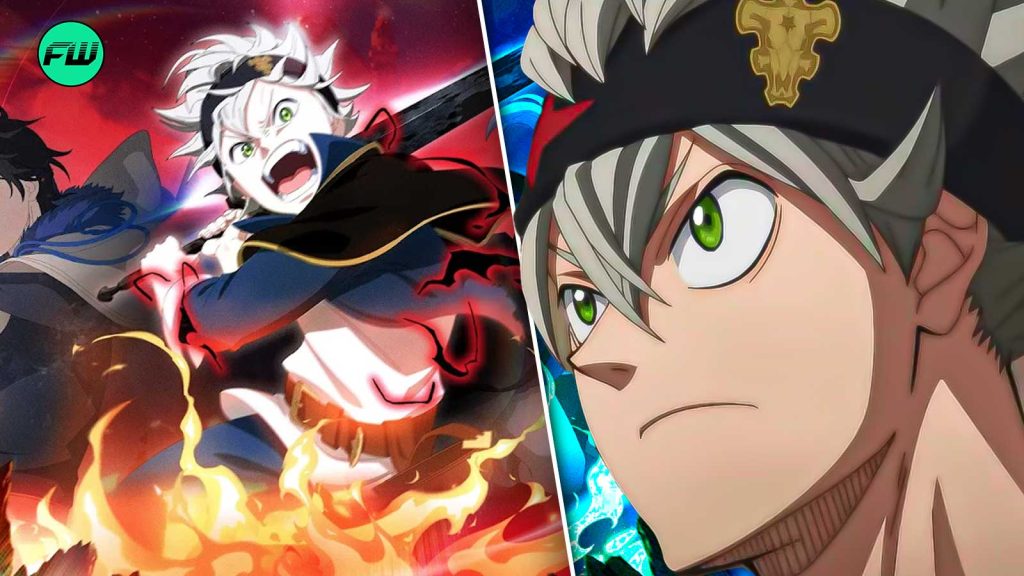“Resilience” is a powerful theme that resonates deeply with the Shonen fans. The concept of a protagonist battered and bruised, but still standing up to fight another day, is firmly infused into the genre’s structure. While many series explore this concept, few manage to do it as effectively as Yūki Tabata’s Black Clover.
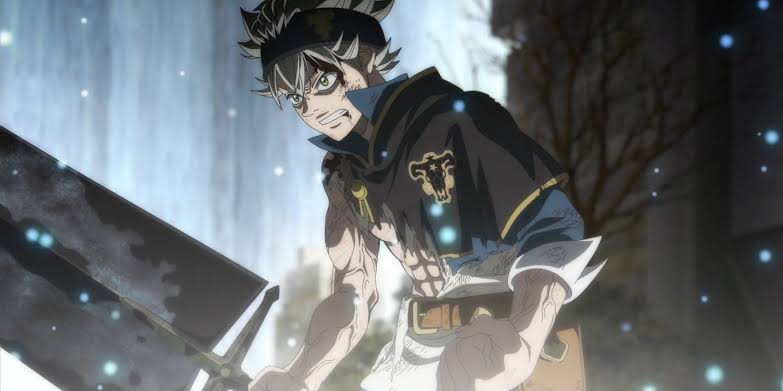
Yūki Tabata captured this notion perfectly with Asta; the protagonist who never gives up. On the other hand, Kohei Horikoshi’s My Hero Academia makes an effort to portray a similar theme via its protagonist, Izuku Midoriya (Deku), but never quite hits the mark with the same impact.
Yūki Tabata’s Gripping Vision for Black Clover
In Black Clover, Asta’s story begins with him being at an absolute disadvantage since he is born without magical abilities in a world where magic determines status and power. But still, instead of succumbing to despair, he chooses to fight against the odds.
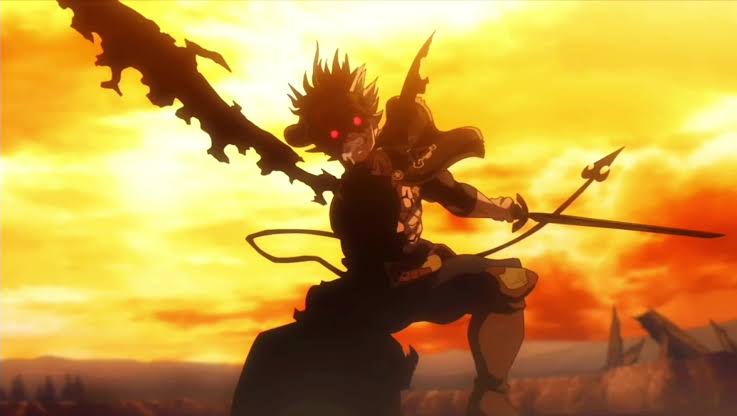
Following the release of Black Clover: Sword of the Wizard King movie, Yūki Tabata answered various questions regarding the series in an interview shared via Anime Explained. In this interview, Tabata candidly shared about his inspirations for this series along with the movie, and also provided some tidbits about the storyline and the characters.
Tabata’s mastery of this concept was particularly emphasized in this interview when he described how the idea for the teaser visual for Black Clover’s film was ignited in his mind. He stated,
I drew the image of “Asta will stand up, and crawl his way back up” in mind. This is one of the main concepts in the film and a major theme that is also important in the main Black Clover story.
Asta’s resilience becomes his major personality trait, and Tabata carefully crafts this as the central theme of the entire series. Every time Asta is knocked down —whether by powerful opponents, self-doubts, or unfortunate events, he gets back up and fights back with much more intensity.
Kohei Horikoshi’s Struggle with Deku’s Portrayal
On the other hand, Deku’s journey in My Hero Academia follows a similar path to an underdog protagonist, yet it often lacks the emotional impact that Asta’s story delivers. Similar to Asta, Deku starts his journey as a powerless individual in a world where superpowers are the norm. However, in the same concept where Asta shows firm resolve, Deku’s journey is often hampered by self-doubt and a sense of melancholy.
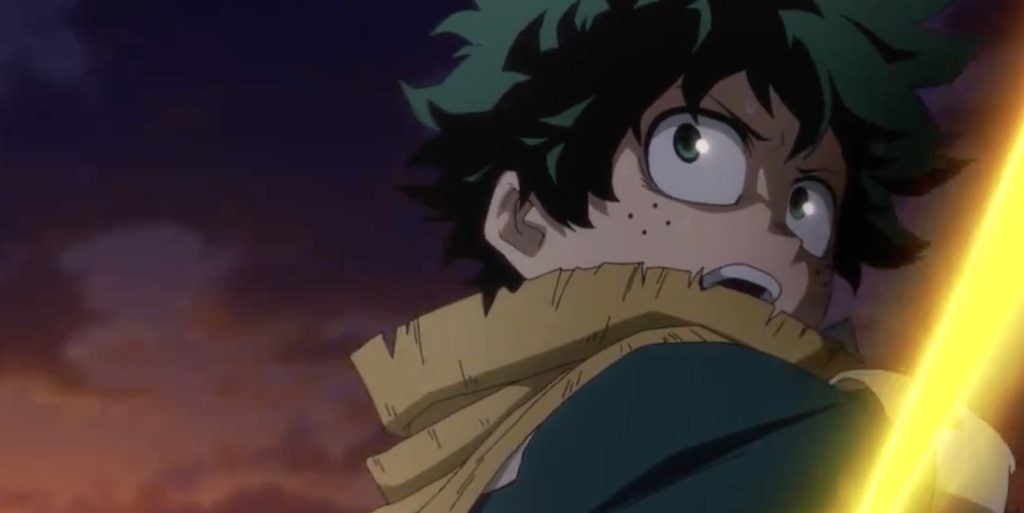
Deku does stand up after being knocked down, but the way Kohei Horikoshi presents this struggle often makes Deku appear more as a sad individual than strong. The audience is frequently shown Deku’s tears, his self-blame, and his emotional turmoil.
While this humanizes Deku, it also makes his moments of resilience feel more like moments of emotional breakdown than true victory. His progression feels weighed down by an overwhelming sense of tragedy rather than the uplifting spirit of never giving up that defines Asta.
The core difference lies in how Yūki Tabata and Kohei Horikoshi approach their characters’ struggles. While both Asta and Deku are underdogs, Asta’s journey of resilience feels more authentic, powerful, and inspiring. Tabata captures the essence of true perseverance by showing that real strength comes from standing up after every fall; something that Black Clover nails with Asta in a way My Hero Academia never quite achieves with Deku.
Black Clover and My Hero Academia are currently available to watch on Crunchyroll.

